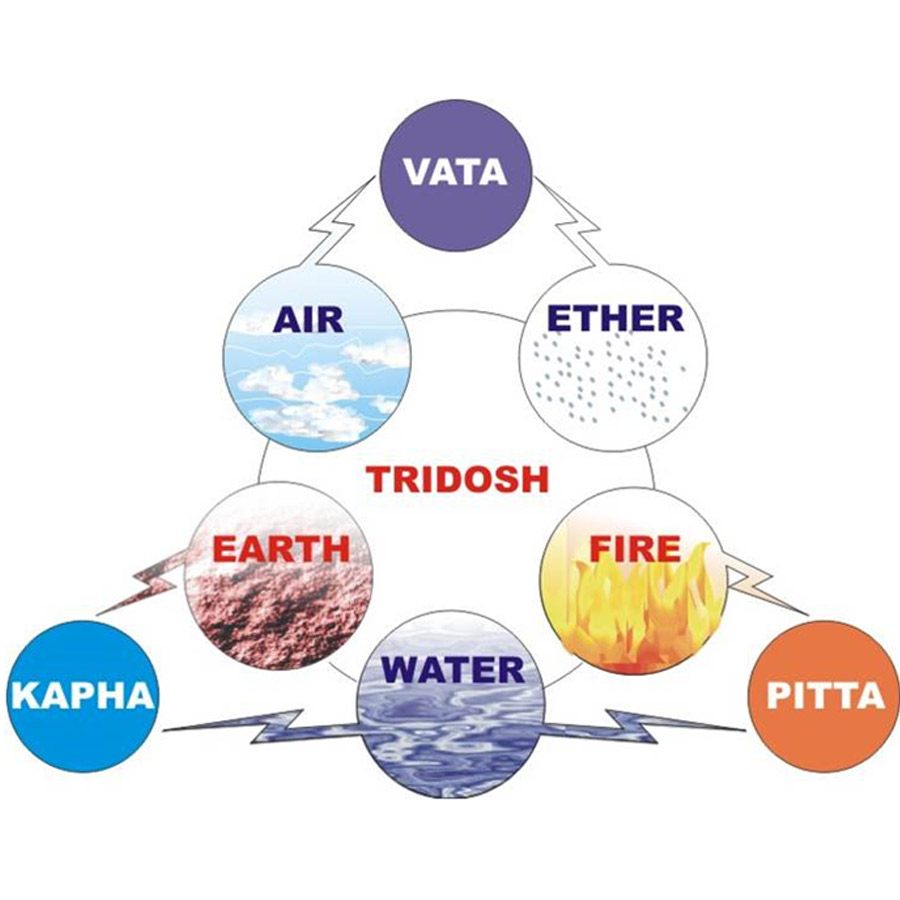
The concept of doshas refers to three fundamental bioenergetic principles that are believed to govern various physiological and psychological functions within the body. These doshas are Vata, Pitta, and Kapha. Here's an overview of each dosha: Vata: Vata is associated with the elements of air and ether (space). It is considered the most delicate of the doshas and is responsible for functions related to movement, such as circulation, breathing, and communication. Individuals with a dominant Vata constitution tend to be creative, agile, and enthusiastic, but when out of balance, they may experience issues like anxiety, insomnia, and digestive problems.
Pitta: Pitta is primarily associated with the elements of fire and water. It governs metabolism, digestion, and transformation in the body. People with a dominant Pitta constitution are often energetic, focused, and have a strong digestive system. When Pitta is imbalanced, it can lead to conditions like inflammation, anger, and acidity.
Kapha: Kapha is linked to the elements of earth and water. It is responsible for structure and stability in the body, as well as lubrication and nourishment. Those with a dominant Kapha constitution tend to have a sturdy build, calm demeanor, and good endurance. However, an imbalance in Kapha can result in weight gain, lethargy, and respiratory issues.
Ayurveda suggests that each person has a unique combination of these doshas, known as their Prakriti, which determines their inherent physical and mental characteristics. Furthermore, imbalances in the doshas, called Vikriti, can lead to various health issues. Ayurvedic treatments and recommendations are often aimed at restoring the balance of these doshas to promote overall well-being and health. It's important to note that Ayurveda is a holistic system of medicine and should be approached under the guidance of a qualified Ayurvedic practitioner.